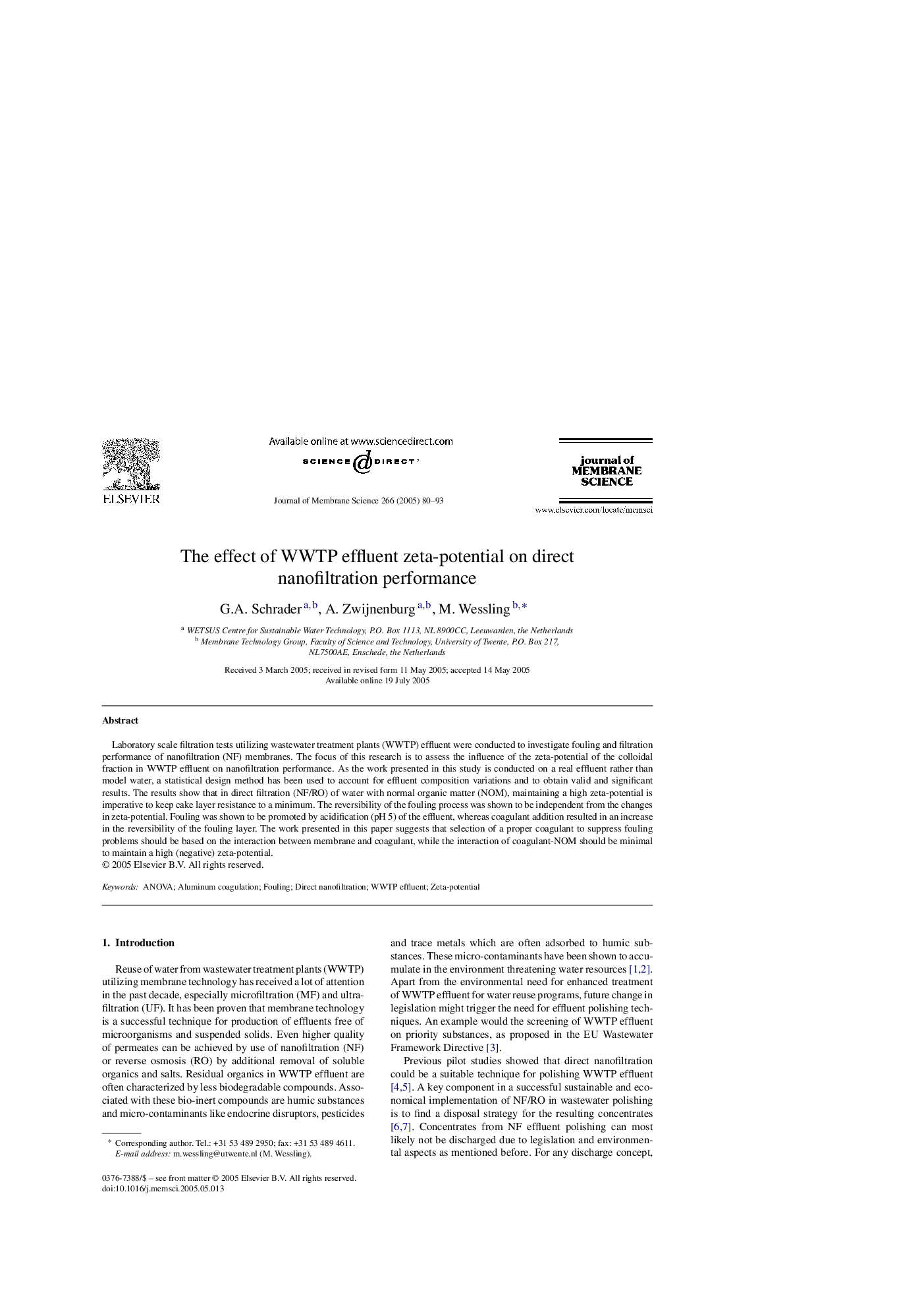| Article ID | Journal | Published Year | Pages | File Type |
|---|---|---|---|---|
| 9684593 | Journal of Membrane Science | 2005 | 14 Pages |
Abstract
Laboratory scale filtration tests utilizing wastewater treatment plants (WWTP) effluent were conducted to investigate fouling and filtration performance of nanofiltration (NF) membranes. The focus of this research is to assess the influence of the zeta-potential of the colloidal fraction in WWTP effluent on nanofiltration performance. As the work presented in this study is conducted on a real effluent rather than model water, a statistical design method has been used to account for effluent composition variations and to obtain valid and significant results. The results show that in direct filtration (NF/RO) of water with normal organic matter (NOM), maintaining a high zeta-potential is imperative to keep cake layer resistance to a minimum. The reversibility of the fouling process was shown to be independent from the changes in zeta-potential. Fouling was shown to be promoted by acidification (pH 5) of the effluent, whereas coagulant addition resulted in an increase in the reversibility of the fouling layer. The work presented in this paper suggests that selection of a proper coagulant to suppress fouling problems should be based on the interaction between membrane and coagulant, while the interaction of coagulant-NOM should be minimal to maintain a high (negative) zeta-potential.
Related Topics
Physical Sciences and Engineering
Chemical Engineering
Filtration and Separation
Authors
G.A. Schrader, A. Zwijnenburg, M. Wessling,
